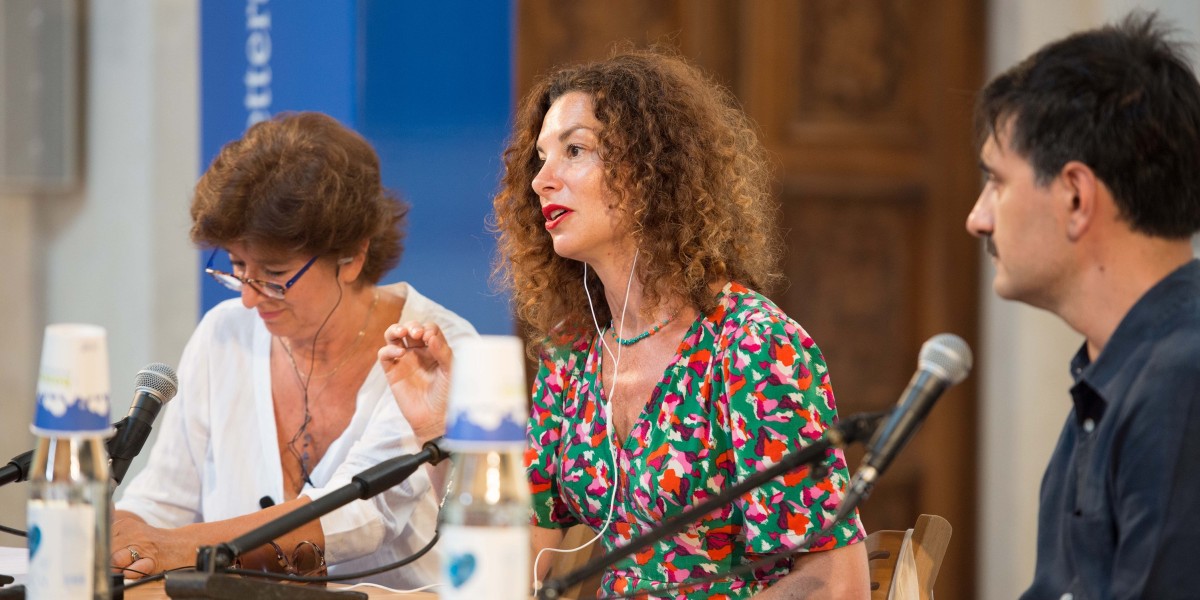
Gaia Vince on climate change and migration
Climate change and migration are two formidable challenges, each significant in its own right, and even more so when they intersect. But what if migration is, in fact, a viable strategy for addressing the impact of climate change? This is the pivotal question explored in a dialogue between Gaia Vince, acclaimed author of The Nomad Century, and Ferdinando Cotugno, held in the historic Basilica Palatina di Santa Barbara in Mantua.
Over the past 12,000 years, human civilisation has thrived, largely owing to the favourable climate of the Holocene epoch. However, these once-stable conditions are rapidly evolving, and vast swathes of our planet are becoming increasingly inhospitable. The inevitability of this transformation looms large, whether we are willing to accept it or not.
After all, humans are a species of small African apes with an extraordinary ability to adapt to diverse environmental conditions, and we possess the unique capacity to manipulate our surroundings for our own benefit. Furthermore, we are the sole species capable of cooperating with individuals who are not our direct genetic kin.
The concepts of borders and nations, as we understand them, are ultimately human constructs. There is no such thing as a purely Greek, Italian, or Russian physical identity; our genetic makeup is a mosaic of diverse influences, and our borders are conventions that have evolved over time. It is imperative that we recognise and embrace our shared humanity.
However, while acknowledging these principles, pragmatism cannot be ignored. The immediate dissolution of the nation-state is neither feasible nor advisable. Instead, we must work toward fostering a global consensus among nations that allows for the orderly movement of people. We must guide migration to places where it can become a catalyst for positive change.
Even concerns about overpopulation warrant nuanced consideration. It is important to note that the global population is projected to peak around mid-century and subsequently decline to approximately 6 billion by the century's end. In many regions of the Global North, aging populations are creating demand for younger workers.
After all”, Vince says, “We are technologically brilliant and highly adaptable. We are hyper-social and cooperative. That’s why we were successful. These are the same superpowers that will get us out of this mess we have got ourselves into.”



